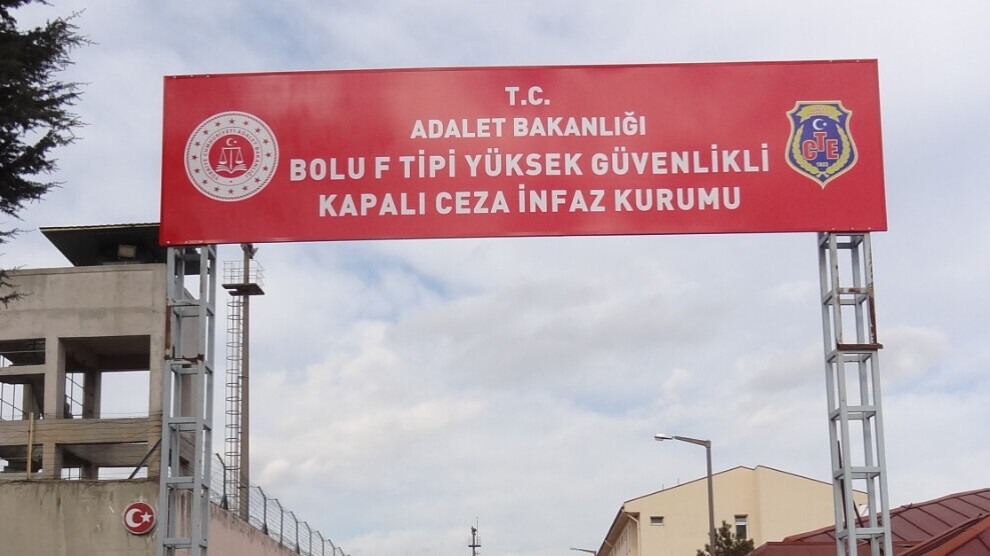Release of 33 political prisoners blocked in Bolu Prison
Authorities are blocking the release of 33 political prisoners in Bolu jail, despite the fact that they have completed their 30-year sentences.
Authorities are blocking the release of 33 political prisoners in Bolu jail, despite the fact that they have completed their 30-year sentences.

In Bolu Prison, the release of 33 political prisoners—almost all of whom are serving life or aggravated life sentences and have completed 30 years of incarceration— is being blocked by the Prison Administration and Monitoring Board. The board has cited reasons such as 'not using water efficiently,' 'not buying a sufficient number of books,' and 'refusing to meet with the prison imam (Islamic cleric)' as grounds for denying their release.
However, lawyer Ishak Demirel from the Istanbul Branch of the Association of Lawyers for Freedom (ÖHD) pointed out that both water usage and access to books from the library in Bolu Prison are subject to quotas, describing the board’s decisions as inconsistent and contradictory.
Some prisoners have had their release blocked five times
Lawyer Demirel said: "At present, there are more than 130 political prisoners in Bolu Prison. Nearly all of them are serving life or aggravated life sentences. For some time now, the release of prisoners who have completed their sentences has been obstructed by the Prison Administration and Observation Board. Only a few individuals were released, and only for a very brief period. Currently, as far as we know, the release of 33 political prisoners is being denied on the grounds that they are ‘not showing good behaviour.’ Among these 33 individuals are prisoners who have completed their 30-year sentences but have had their release blocked for the fifth time— meaning they have been waiting for an additional one and a half to two years. Some of them had previously received three solitary confinement punishments, which led to the revocation of their conditional release."
The lawyer added: "Even though these penalties were overturned by the Court of Cassation in January, the Prison Administration and Observation Board is still preventing their release. The individuals I am referring to are prisoners who have been in this prison for nearly 32 to 33 years. Due to earlier disciplinary sanctions, they had already served time beyond the 30-year threshold. Yet even after the legal obstacles to their release were lifted, their freedom continues to be blocked—this time by administrative discretion."
Decisions contradict prison regulations
Lawyer Demirel emphasized that the decisions made by the Prison Administration and Observation Board contradict prison regulations and noted that in some cases, punishments have even been extended by the High Criminal Courts. He explained: "In prisons, there is already a point-based evaluation system used by the Prison Administration and Observation Board. However, the structure of this board is legally problematic, and the way its procedures are regulated is deeply flawed. Although it is technically subject to judicial review by Criminal Judgeships of Peace or the High Criminal Court, there is no adequately functioning oversight mechanism in place. In some cases, the very prison guards who mistreat prisoners during transfers to hospitals, for instance, are part of this board and involved in the evaluation process. These are the same individuals responsible for evaluating the prisoners."
The lawyer continued: "There are reports stating things like, ‘the prisoner did not obtain a sufficient number of books.’ But in Bolu Prison, you cannot even access as many books as you want. Another justification was ‘not using water efficiently,’ which is absurd, because the prison already imposes a strict quota on water usage—you simply cannot use more than a certain amount. Furthermore, reasons like not meeting with the imam (Islamic cleric), not attending sessions with a psychologist, or not registering for educational courses— none of which has any legal basis—are used to claim that prisoners are not demonstrating good behaviour.
The root structure of the board is problematic, but what is happening in Bolu has become a prolonged and systematic violation of the law. No political prisoner is being granted release under any circumstances. There are prisoners who have completed 30 years and have been held for an additional one and a half to two years. Even when the board’s decisions are overturned, the prosecutor’s office objects, and then the High Criminal Court intervenes to reverse the decision again, delaying the release further. Even if you receive a positive ruling from the execution judge, unfortunately, the High Criminal Courts issue contradictory decisions."